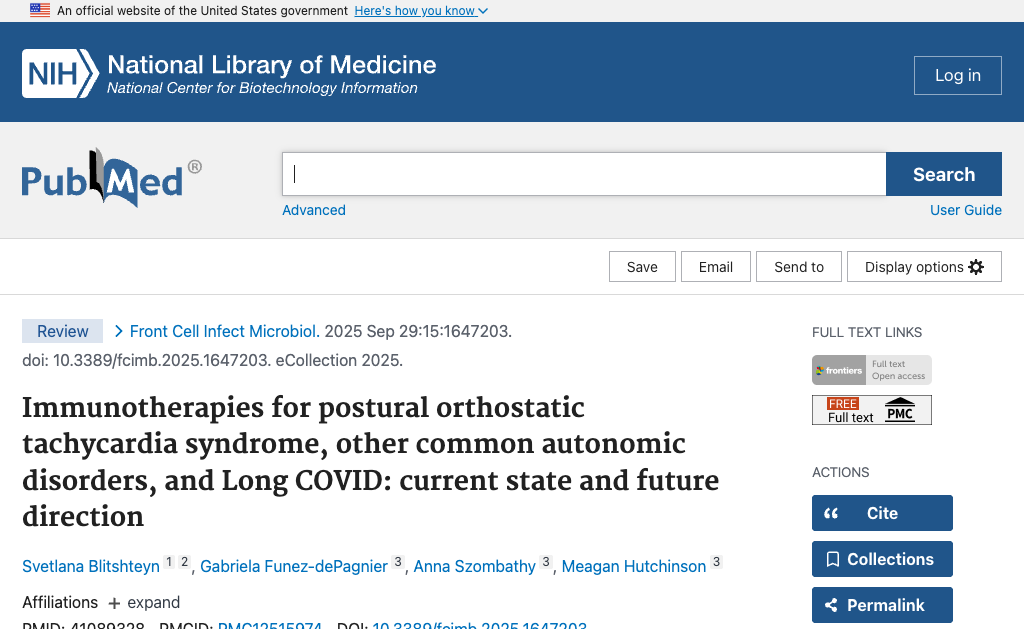Immunotherapies for postural orthostatic tachycardia syndrome, other common autonomic disorders, and Long COVID: current state and future direction.
This narrative review explains that common autonomic disorders such as POTS, neurocardiogenic syncope, and orthostatic hypotension often have autoimmune or inflammatory features and can occur with systemic autoimmune disease, autonomic neuropathy, and post-infectious syndromes like Long COVID. Standard care has focused on symptomatic measures (fluids, salt, compression, exercise, and drugs such as beta-blockers, fludrocortisone, midodrine), but these are frequently insufficient, especially for patients with severe symptoms and major functional impairment. The authors summarize case reports, case series, and clinical experience suggesting that immune-targeted treatments—particularly IVIG and subcutaneous immunoglobulin, but also plasmapheresis, intermittent corticosteroids, and rituximab—may help some carefully selected, treatment-refractory patients, likely those with an autoimmune/autoinflammatory phenotype. However, current evidence is low quality and uncontrolled, so these therapies remain off-label and experimental. The paper emphasizes that large, multicenter, placebo-controlled trials are urgently needed to determine which patients benefit, how to dose and monitor these therapies, and how they might be applied in Long COVID–related autonomic dysfunction, with the long-term goal of moving beyond purely symptomatic care toward disease-modifying treatment for a subset of patients.
